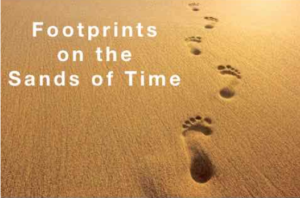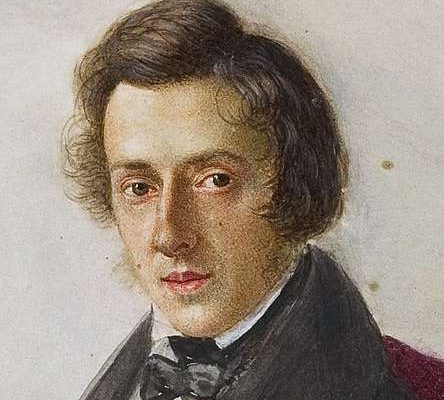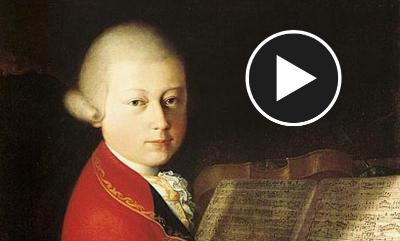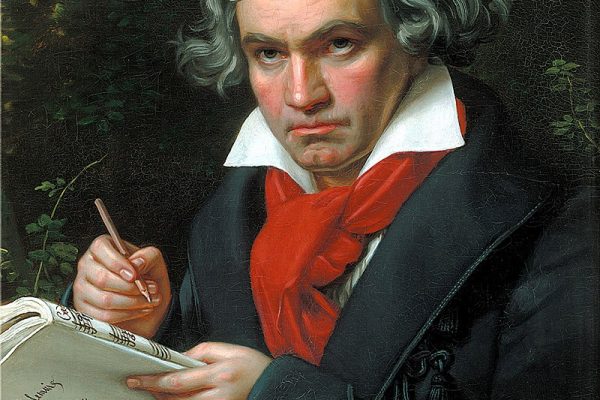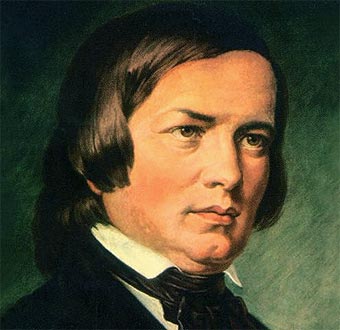Frederic Chopin Waltz in G# Minor, OP. 64, No 2 (3:31) On this day, March 1, 1810, Frederic Chopin was born in Poland. He was a Polish-French composer and pianist of the classical Romantic period. He moved to Paris at age 21 where he lived until his death at age 39 in 1849. In my opinion, this is one of his most beautiful waltzes (although that’s a difficult choice!) Enjoy, Dr. Weiss Dedicated to David G. and Charlie B. Some information from Wikipedia Related Posts: Chopin Waltz in Gb Major Op 70 No 1 Chopin Waltz in F Minor Op 70 No 2 (Haunting) Chopin Waltz in Db Major Op 64 No 1 (“MInute Waltz”)
Many of you have asked me “What’s with all the music, Dr. Weiss?” Well, as I’ve told some of you:
I personally call every surgery patient on the evening of surgery just to make sure they are doing well and have no questions that need answering. Occasionally, I would be at the piano and play a song that we had listened to that day. I gradually realized that I wanted to go through all the music that I had played during my life and at least start making a list of the songs that I had recently played.
Well, there are now about 600 songs on the list and I realized that it in a way it represented the ‘soundtrack of my life’! And that’s how I got the idea to record these songs and share them with my patients, friends and family. After I record them they will reside here, for easy access.
Music is truth. It’s honest. It’s really the first social media, where in a way, people could share their souls directly. And isn’t that what the purpose of social media is and why it’s so popular - trying to share who you really are, as completely and directly as possible?
Finally, it has been (and will continue to be) a genuine pleasure sharing these different songs with you and I really appreciate all of your positive feedback!!
Sonata in C Major
January 27, 2024
Mozart: Sonata in C Major (9:30) Three Movements: I Allegro, II Andante, III Rondo Allegretto Recorded 1/25/24 Mozart was born on this day January 27 in 1756. This Sonata was composed 1788 – 236 years ago, three years before his death at age 35. Although the piece is well known today, it was not published in Mozart’s lifetime and first appeared in print in 1805. A typical performance takes about 11 minutes, but I think I play the second and third movements a little faster, so it clocks in at 9:30. Because we all seem to have shorter attention spans, I’ve been trying to keep my recordings to under 3-4 minutes, but this complete sonata is so delicate and beautiful that I was compelled to record all three movements. It’s well worth a relaxing 9-minute 30-second listen. I realized that there were so many notes, that I didn’t need to use the damper pedal at all, and doing so allows us to hear the left-hand harmonic themes more clearly, especially between 3:53 and 4:07. According to Wikipedia, “Despite his short life, Mozart’s rapid pace of composition resulted in more than 800 works of virtually every Western classical genre of his time. Many […]
Theme from Symphony in G Minor (First Movement) (1:31)
December 5, 2023
Theme from Symphony in G Minor (First Movement) (1:31) “The music is not in the notes, but in the silence between.” Wolfgang Amadeus Mozart This symphony is unquestionably one of Mozart’s most greatly admired works, composed in 1788 at the age of 32. (He was to die 3 years later.) The fact that we are still humming this melody is a testament to the unique nature and magic of music. Few things stand the test of time more than music: maybe because the music still lives on and is present among us. But not just any music – who besides Mozart and some other classical composers will be widely known in another 235 years? Frank Sinatra, Lennon/McCartney, Bob Dylan and possibly Stevie Wonder? Symphony No. 40 in G Minor, K. 550, is one of only two symphonies Mozart wrote in minor keys and reflects his interest in the artistic movement known as Sturm und Drang (Storm and Stress), in which darker and stronger emotions were showcased. The year 1788 was a dark one for Mozart. Viennese audiences were proving less eager to hear his concerts and recitals, bills were piling up, and his infant daughter Theresia had just died. Letters to friends […]
The Merry Farmer Returning From Work
September 4, 2023
The Merry Farmer Returning From Work Listen to this short piece by Robert Schumann (Opus 69, #10)– notice that the farmer is returning more quickly as he gets closer to home! Enjoy, Dr. Weiss
The Secret Life Of Plants – Debussy Intro
May 22, 2023
The Secret Life of Plants Words and Music by Stevie Wonder with an introduction by Debussy I came upon this song that I recorded about 5 years ago and it was so beautiful that I thought I’d share it again. The music is haunting and evocative of a secret communication between plants that we may be unaware of. And as always, Stevie’s words say it all: And what we think as insignificant, provides the purest air we breathe… But if you ask yourself where would you be, without them you will find, you would not So please join me in marveling at the wonders of nature, and take a break from all of our worldly concerns, for at least a few minutes (3:42 to be exact.) Enjoy, Dr. Weiss PS For the story behind my arrangement: click here PSS Plant lovers might enjoy a book that a patient of mine turned me on to: The Overstory by Richard Powers, which was heavily inspired by the life and work of forest ecologist Suzanne Simard. Simard is best known for her research on how fungi and roots facilitate communication and interaction between trees and plants, and her own book about her research being ridiculed before it was vindicated is also fascinating, Finding The […]
Chopin Waltz in Gb major Op 70 No 1
March 1, 2023
Frederic Chopin Waltz in Gb Major, OP. 70, No 1 (3:31) On this day, March 1, 1810, Frederic Chopin was born in Poland. He was a Polish-French composer and pianist of the classical Romantic period. He moved to Paris at age 21 where he lived until his death at age 39 in 1849. Chopin was the master of the classical waltz, and the center section (Meno mosso at 0:53) is one of the most beautiful and sublime melodies that I know. Believe it or not, Chopin ultimately decided against publishing it, believing it unworthy of publication! However, lucky for us, it was published posthumously, after his death. I have played this waltz for years but have never felt that I have gotten my performance quite right, but I’m getting closer. I tend to play all of his waltzes rubato, which is the temporary disregarding of strict tempo to allow an expressive quickening or slackening, usually without altering the overall pace. I just know that I try to play it emotionally, as if it was pouring out of my (and Chopin’s) soul. Special Bonus Track: Waltz in G# Minor, Op. 64, No 2 (recorded February 29, 2024, 4:53) Enjoy, Dr. Weiss Dedicated to David G. and Charlie B. Some […]


